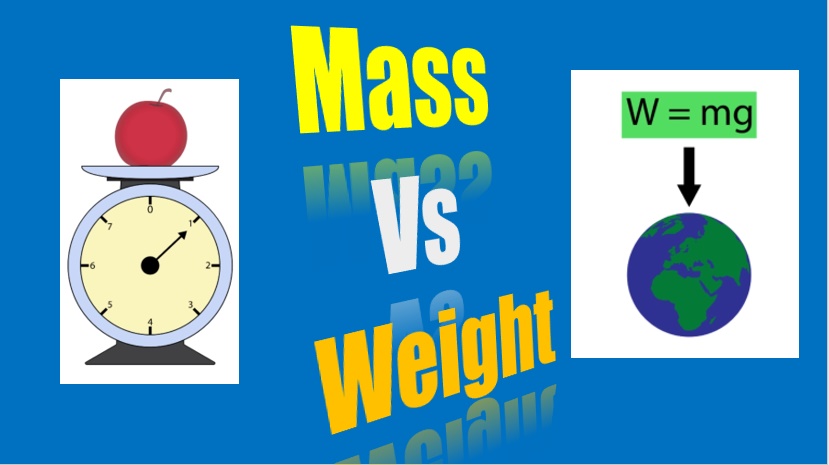
What is the difference between mass and weight : Before delving into the differences between mass and weight, it’s important to establish a clear understanding of these fundamental concepts in physics. Both mass and weight are crucial when describing and analyzing the behavior of objects in the physical world. While they are often used interchangeably in everyday language, they have distinct meanings and are measured differently in scientific contexts.
Mass refers to the amount of matter in an object, often measured in kilograms (kg) or grams (g). It is an intrinsic property and does not change with location. In other words, an object’s mass remains constant regardless of where it is located in the universe.
On the other hand, weight is the force exerted on an object due to gravity. It is directly proportional to an object’s mass but also depends on the gravitational field strength at the location where the object is situated. Weight is typically measured in newtons (N) or pounds-force (lbf).
Understanding the difference between mass and weight is crucial in various scientific disciplines, from physics to engineering, as it impacts how we design and interact with objects in our environment. Let’s now explore these differences in detail.
Q.1. What is the difference between mass and weight of an object. Will the mass and weight of an object on the earth be same as their values on Mars? Why?
Mass and weight are two related but distinct physical properties of an object, and they are often confused. Here’s the difference between them:
Mass:
1. Definition: Mass is a measure of the amount of matter in an object. It is an intrinsic property and is the same everywhere in the universe. Mass is typically measured in kilograms (kg) or grams (g).
2. Invariance: Mass does not change regardless of an object’s location in the universe. It remains constant whether the object is on Earth, Mars, the Moon, or in outer space.
Weight:
1. Definition: Weight is the force exerted on an object due to gravity. It depends on both the mass of the object and the gravitational field strength of the celestial body it is on. Weight is typically measured in newtons (N) or pounds (lb).
2. Variability: Weight varies depending on the strength of the gravitational field. On Earth, where the gravitational acceleration is approximately 9.81 m/s², an object’s weight can be calculated using the formula: Weight (W) = Mass (m) x Gravitational Acceleration (g).
Now, let’s address your question regarding the mass and weight of an object on Earth and Mars:
– Mass on Earth and Mars: The mass of an object will remain the same regardless of whether it is on Earth or Mars. Mass is an intrinsic property and does not change based on location. So, an object with a mass of, for example, 5 kg on Earth will also have a mass of 5 kg on Mars.
– Weight on Earth and Mars: The weight of an object will be different on Earth and Mars due to the difference in gravitational field strength. Earth’s gravity is stronger than Mars’, so the weight of an object on Earth will be greater than its weight on Mars. To calculate the weight on each planet, you can use the formula mentioned earlier, where the value of gravitational acceleration (g) is different for Earth and Mars.
For example:
– The weight of a 5 kg object on Earth (g ≈ 9.81 m/s²) would be approximately 49.05 N.
– The weight of the same 5 kg object on Mars (g ≈ 3.72 m/s²) would be approximately 18.6 N.
In summary, the mass of an object is a constant property that remains the same regardless of its location, while the weight of an object depends on both its mass and the strength of the gravitational field of the celestial body it is on, leading to differences in weight between Earth and Mars due to their varying gravitational strengths.
What is the difference between mass and weight ?